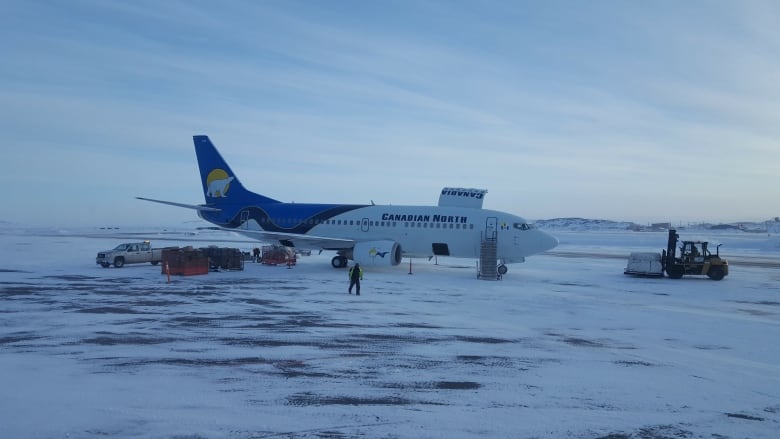Canadian government pledges $400 million for northern transport

The federal government is set to announce funding to help improve the remote roads, airports and bridges of Canada’s North.
On Monday, Transport Canada began a call for proposals for funding to tackle transportation challenges in the territories.
The National Trade Corridors Fund will dedicate $2 billion over 11 years to beef up Canadian trade infrastructure, including up to $400 million for transportation initiatives in the Yukon, Northwest Territories and Nunavut, Canada’s three northern territories. The fund also provides support for trade diversification strategies.
Groups are being asked to submit proposals for approval to get a slice of the money — provided the projects they submit meet the criteria and objectives of the fund.
The projects will be assessed by Transport Canada to see how well they fit four objectives:
- Reducing bottlenecks and capacity issues to support the flow of goods and passengers.
- Improving the climate resilience of the transportation system, which may include new technologies.
- Addressing the unique transportation needs to take into account things like safety and economic and social development.
- Building on pre-existing investments made by public and private sector partners.
The chosen projects will support things like airports, all-season roads, bridges and ports — with the aim of enhancing safety and development in the territories.
The government is also looking for projects designed to help increase access to northern markets normally cut off due to tough terrain and weather conditions, Transport Canada said in a news release.
“Enhancing the northern transportation system will support and promote economic growth, trade diversification and social development, offer job opportunities, and ensure greater connectivity for Northerners,” said Transport Minister Marc Garneau.
Territorial and municipal governments, Indigenous groups, non-profit organizations, private-sector firms, and federal Crown corporations and agencies are eligible to present proposals, which are due at the end of March. Expressions of interest should be submitted no later than Jan. 15, 2019.
Northerners demand infrastructure
Garneau’s announcement comes several months after Nunavut’s government told Ottawa it’s time for Canada to focus on infrastructure in the North.
“Our opportunities are hindered by infrastructure, the lack of fibre, the lack of roads,” David Akeeagok, the Nunavut minister of economic development and transportation, told an energy conference in August.
The idea of establishing a Northern Corridor was first put forward by researchers at the University of Calgary’s School of Public Policy in a 2016 paper.
Their proposal consists of a $100-billion, 7,000-kilometre national right-of-way in Canada’s north and near north for possible road, rail, pipeline, electricity and communication infrastructure.
Related stories from around the North:
Canada: Northern Canadian village hopes future road will boost tourism, CBC News
Faroes: Underwater tunnels revolutionize transport in the Faroe Islands, Cryopolitics Blog
Finland: Finland to upgrade Arctic border-crossing point to welcome more traffic from northern Russia, The Independent Barents Observer
Norway: European Commission suggests extending major rail network to Northern Norway, The Independent Barents Observer
Russia: Russia giving major upgrade to airstrip in High Arctic, The Independent Barents Observer
Sweden: Growing number of Swedes choose train travel over flying to reduce pollution, Radio Sweden, Radio Sweden
United States: ‘The permafrost is dying’: Alaska city sees increased shifting of roads and buildings, Alaska Dispatch News



